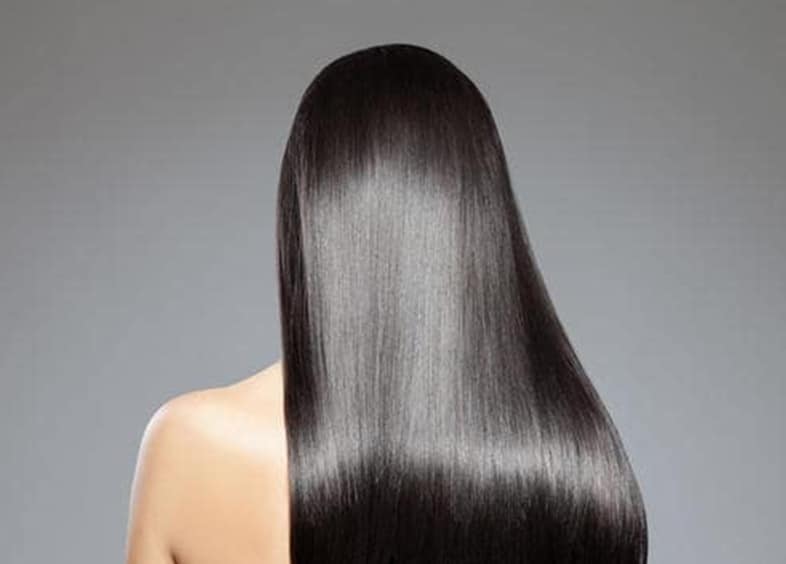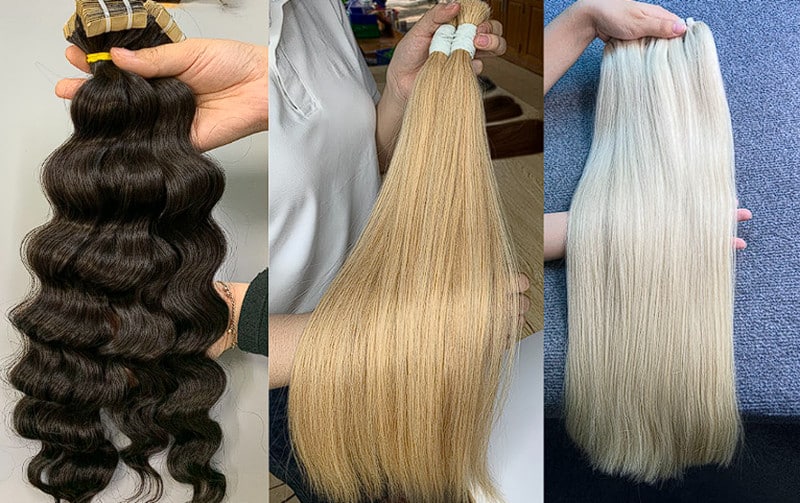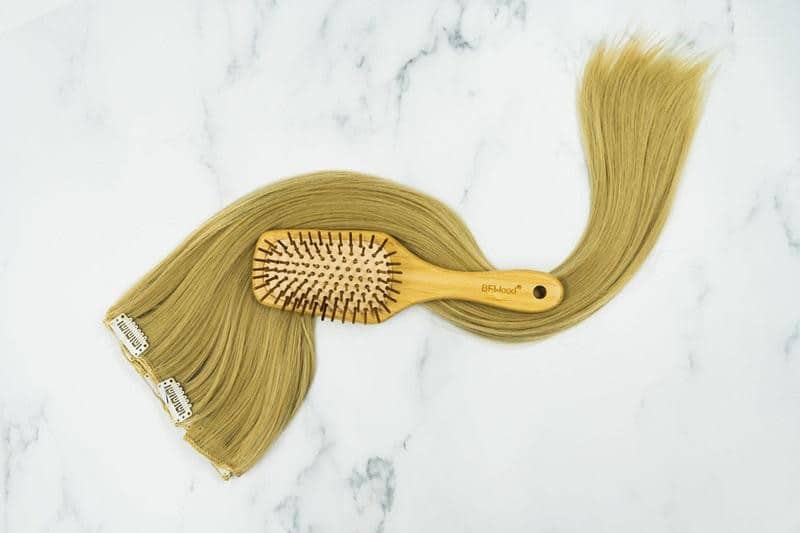The global demand for hair extensions is booming, with more and more people seeking to enhance their natural locks with luxurious, flowing hair. In this vibrant market, Vietnam has emerged as a leading supplier of high-quality and ethically sourced hair extensions.
Whether you’re a salon owner, a stylist, or an individual looking to elevate your style, sourcing hair extensions from Vietnam can be a game-changer. Let’s delve into the world of Vietnamese hair extensions and discover how to find the perfect match for your needs.
Why Vietnam for Hair Extensions?

Vietnam boasts several key advantages that make it a prime destination for sourcing hair extensions:
- Vietnamese hair is renowned for its strength, thickness, and natural beauty. The country’s favorable climate and genetics contribute to a vast supply of high-quality hair, providing ample raw materials for extension production.
- Vietnamese artisans have honed their skills in hair collection, processing, and extension crafting over generations. Their expertise ensures that each extension is meticulously crafted to meet the highest standards of quality.
- Due to the abundance of raw materials and efficient production processes, Vietnamese hair extensions are often more affordable than those sourced from other regions, making them an attractive option for budget-conscious buyers.
- Vietnam’s hair extension industry boasts a well-developed supply chain, facilitating smooth sourcing and export procedures. This means that you can easily find reliable suppliers and expect timely delivery of your orders.
Understanding Vietnamese Hair Extension Types
Vietnamese hair extensions come in various types, each with its unique characteristics and benefits:
- Remy Hair: Remy hair is considered the gold standard in hair extensions. The hair strands are collected and processed carefully to ensure that the cuticles remain aligned in the same direction. This results in extensions that are soft, silky, tangle-free, and mimic the natural flow of your own hair.
- Virgin Hair: Virgin hair is unprocessed hair that has never been chemically treated or dyed. It’s the purest form of hair extensions and is prized for its natural texture, color, and longevity.
- Raw Hair: Similar to virgin hair, raw hair is also unprocessed. However, it may have undergone gentle cleansing to remove dirt and debris. Raw hair offers a natural look and feel, making it a popular choice among those who prefer minimal processing.
- Double Drawn Hair: Double drawn hair extensions have undergone a meticulous process to ensure consistent length from root to tip. This creates a fuller and more voluminous look, especially for those with thinner hair.
- Single Drawn Hair: Single drawn hair extensions have varying lengths, which can create a more natural, layered appearance. They are often a more budget-friendly option compared to double drawn hair.
Ethical Sourcing and Quality
Ethical sourcing is a critical consideration when choosing hair extensions. It ensures that the hair is obtained responsibly, without exploiting workers or harming the environment. Ethically sourced hair extensions guarantee fair wages, safe working conditions, and no child labor involved in the production process.
Ethical sourcing goes beyond fair treatment of individuals. It also involves responsible environmental practices. This can include minimizing waste during production, using eco-friendly materials and processes, and supporting sustainable hair collection methods.
By choosing ethically sourced hair extensions, you become an active participant in a positive cycle. You’re not only investing in a high-quality product but also supporting the livelihoods of individuals and communities involved in the hair extension industry. Your purchase empowers workers, promotes fair trade practices, and contributes to the overall well-being of Vietnamese society.
How to Verify Ethical Practices
When sourcing hair extensions from Vietnam, it’s essential to verify that your supplier adheres to ethical practices.

Here’s how:
- Ask questions about their sourcing methods, working conditions, and sustainability initiatives. A reputable supplier will be transparent and willing to share information about their practices.
- Look for certifications like Fair Trade, which indicate that the hair has been ethically sourced.
- If feasible, visiting suppliers in person can give you valuable insights into their operations and working conditions.
- Conduct online research and read reviews from other buyers to gauge a supplier’s reputation and ethical track record.
Assessing Hair Extension Quality
- The quality of hair extensions can vary significantly, so it’s crucial to assess their quality before making a purchase. Here are some key factors to consider:
- Ensure the cuticles are aligned in the same direction. This can be checked by running your fingers along the hair shaft; it should feel smooth and not rough or tangled.
- Vietnamese hair is naturally thick and dense, but it’s still essential to check for consistency throughout the length of the extensions.
- Choose hair extensions that match your desired color and texture. If you want to color or process the extensions, opt for virgin or raw hair as they can withstand chemical treatments better.
- Inquire about the expected lifespan of the hair extensions. High-quality extensions should last for several months with proper care.
Finding Reliable Vietnamese Hair Extension Suppliers
Vietnam offers numerous avenues for finding reputable hair extension suppliers:
Channels for ‘Made in Vietnam’ suppliers
Trade Shows and Exhibitions:
Attend hair extension trade shows in Vietnam, where you can meet suppliers face-to-face, examine their products, and establish valuable connections.
Online Directories and Marketplaces
Explore online platforms that list Vietnamese hair extension suppliers. Some popular options include Alibaba, AliExpress, and specialized hair extension websites.
Referrals and Networking
Ask for recommendations from fellow salon owners, stylists, or industry professionals who have experience sourcing hair extensions from Vietnam.
Vetting Potential Suppliers
Before finalizing a purchase, thoroughly vet potential suppliers to ensure they meet your quality and ethical standards:
- Check Reviews and Testimonials: Read online reviews and testimonials from other buyers to gain insights into a supplier’s reputation and product quality.
- Request Samples: Ask for samples of the hair extensions you’re interested in. This allows you to assess the quality firsthand before committing to a larger order.
- Ask for References: Request references from previous clients to verify the supplier’s reliability and track record.
- Verify Business Licenses and Certifications: Ensure the supplier is a legitimate business with the necessary licenses and certifications to operate in the hair extension industry.
Purchasing and Exporting hair Extensions
Once you’ve chosen a supplier, it’s time to negotiate terms and arrange shipping:

- Minimum Order Quantities (MOQs): Some suppliers have minimum order quantities. If your desired quantity is below the MOQ, try negotiating a smaller order or consider partnering with other buyers to reach the MOQ.
- Payment Terms: Discuss acceptable payment methods and terms, such as upfront payment, deposits, or letters of credit.
- Shipping Options: Choose a shipping method that balances cost and speed. Air freight is faster but more expensive, while sea freight is more economical but takes longer.
- Customs Regulations: Be aware of import duties and taxes applicable to hair extensions. Factor these costs into your budget.
Sourcing ethical and high-quality hair extensions from Vietnam is a rewarding endeavor that can elevate your business or personal style.
By understanding the different types of Vietnamese hair extensions, prioritizing ethical sourcing, and following the tips outlined in this guide, you can confidently navigate the Vietnamese hair extension market and find the perfect extensions to enhance your natural beauty.

